Premium Only Content

White Riot Janie Jones The Card Cheat This Is England Straight To Hell The Clash
White Riot Album: The Clash (1977)
Janie Jones Album: The Clash (1977)
The Card Cheat Album: London Calling (1979)
This Is England Album: Cut the Crap (1985)
Straight To Hell Album: Combat Rock (1982)
by The Clash
FYI... nowhere in this video is England...
In White Riot, Clash frontman Joe Strummer is expressing his view that young white people should be outraged over their oppressive government just as blacks were, and should demonstrate through direct action and protest. He made it clear that the song - and the group - in no way advocated violence, and that it was certainly not racist.
Strummer explained to NME: "The only thing we're saying about the blacks is that they've got their problems and they're prepared to deal with them. But white men, they just ain't prepared to deal with them - everything's too cozy. They've got stereos, drugs, hi-fis, cars. The poor blacks and the poor whites are in the same boat."
White Riot was inspired by the Notting Hill riots in west London on August 30, 1976. The carnival was a celebration of Caribbean culture, but it turned violent when police were attacked after arresting a pickpocket. Over 100 police officers were hospitalized along with about 60 crowd members. A lot of the tension was along racial lines, with black youths clashing with white officers, although gangs of white youth were also involved. Clash members Joe Strummer, Paul Simonon, and their manager Bernie Rhodes were at the event and got caught up in the riots, which led to this song. They included a photo of the Notting Hill riots on the back cover of the album.
Released in the UK on CBS Records March 26, 1977, "White Riot" was The Clash's first single. It became one of their signature songs and was an indication of things to come. The Clash spent the next eight years speaking out for the lower class and against the establishment. Targets of their scorn included the British government and their record company.
Predictably, White Riot caused some problems during Clash concerts at times when audience members - often political punks - would use it as an excuse to cause trouble. Whether they should play it or not was sometimes a source of tension in the band.
At a gig in 1979, Joe Strummer was determined to play White Riot as an encore but Mick Jones vehemently disagreed, saying he was sick of the song and wanted to leave it behind. The argument became heated and Strummer for the only time in the band's career punched Jones, leading to an odd situation during the encore where Jones had a bandage around his eye and nose whilst playing on stage - he gave up playing it halfway through and left the rest of the band to play on. Other tales abound of promoters requesting the band not to play the song for fear of wrecking the venue. Naturally, The Clash being the troublemakers that they were, would play it anyway.
Clash members Mick Jones and Joe Strummer played White Riot together for the last time in November 2002. Jones was in the audience for one of Strummer's solo shows and came onstage to join him. Strummer usually didn't like to play this, but he turned to Jones and said, "This one's in 'A', you know it." Strummer died of a heart attack a month later.
The album wasn't released in the US until 1979. Over 100,000 copies were sold there as an import in 1977.
"Janie Jones" was one of the first ever songs written by The Clash, written not long after singer Joe Strummer had joined to initially form the band in 1976. The tune and chorus apparently came to guitarist Mick Jones whilst riding on the 31 bus from Harrow Road to Chalk Farm in London, with Strummer subsequently helping out with the rest of the lyrics.
Musically Janie Jones is very simple, with bassist Paul Simonon's one-note bassline in the choruses being very noticeable. It could be speculated that this is a deliberate musical attempt to emphasize the monotony and boredom of the lyrics, but more likely it's because at this stage Simonon was still learning to play bass properly and couldn't physically play anything more complicated!
The lyrics concern the average working life, and the struggle to try and find some fun in a boring office job. The protagonist attempts to have some fun by meeting up with a lady friend after hours ("An' he knows when the evening comes, when his job is done he'll be over in his car for you"), and also discusses how the dull job and abusive boss ("An' in the in-tray lots of work, but the boss at the firm always thinks he shirks") is necessary to cut a living ("But he's just like everyone, he's got a Ford Cortina that just won't run without fuel").
Janie Jones also includes the first of many anti-establishment sentiments in Clash songs ("This time he's gonna really tell the boss, gonna really let him know exactly how he feels").
Period references include the aforementioned Cortina (a popular cheap car of the time), the sitcom Love Thy Neighbour ("Fill 'er up, Jacko!") and the 1950s Payola radio scandal ("There's no payola in his alphabetical file").
The title "Janie Jones" comes from the actual name of a controversial cabaret singer/vice queen from the 1950s and '60s who attracted controversy from being involved in the payola Radio One scandal in the 1960s in a "sex for airplay" scenario. Her other scandals included attending the premiere of a film in 1964 in a topless dress, and being arrested and jailed in 1973 for not just the Payola scandal but also for running a brothel and perverting the course of justice by threatening witnesses. She also had a partial pop career in the 1960s, including a single "Witches' Brew" which peaked at #46 in the UK Singles Chart. According to the band, they used her name because someone like her would seem impossibly glamorous to someone working in a dull office job. She subsequently became friends with the band, and together with The Clash and the Blockheads (credited jointly as The Lash) she released another single in 1982 entitled "House of the Ju-Ju Queen," which was also produced by Joe Strummer.
Janie Jones is notable in The Clash's canon in that it is the only song of theirs to be played from first show to last. The band played so many shows and had a policy of rotating their setlist night by night, so it's hard to say that it was played at every single show, but it certainly featured in 99% of their shows and tours to all accounts. It was played in their first shows in 1976, and in their farewell shows in 1985.
The simple nature of Janie Jones means that it is very easy to cover, and many cover versions of the song exist, including versions by the Rockabilly band The Farrell Brothers (for the This Is Rockabilly Clash album), Bush, The Paddingtons, The Slackers (ft. Chris Murray), Songdog, and famously by Pete Doherty's band Babyshambles.
The Babyshambles cover is notable for several reasons - lots of stars of the British indie rock scene feature on the track, including the Kooks, the Gulliemots and the Dirty Pretty Things. This was Carl Barat's first collaboration with Doherty since the breakup of The Libertines, although neither actually met during the recording process. The music video features the original Janie Jones of the title being chauffeured around London in a limousine with original Clash guitarist Mick Jones.
Lead singer Joe Strummer, who wrote the lyrics to The Card Cheat, noted in promotional interviews for the album that he had been reading the poetry of Sylvia Plath, and the darkness of her writing could well have been an influence on the dark lyrics of "The Card Cheat."
The Card Cheat was recorded late in the London Calling sessions, and by this time according to reports, producer Guy Stevens was so inebriated he was unable to work most of the time, so guitarist Mick Jones was producing the recordings along with engineer Bill Price. It was Mick's idea to have everything in this song double-tracked, to create a Phil Spector-style "wall-of-sound" feel to the instrumentation ("That's the secret, two of everything" he said in a 1991 interview).
The lyrics continue the same themes of an outsider in society as other songs that proceeded it on the album, notably "Jimmy Jazz," "Rudie Can't Fail" and "Wrong 'Em Boyo." Contrasting to those other songs, however, "The Card Cheat" is incredibly downbeat, with the jaunty piano tunes contrasting with the lyrics about a lonely gambler finally running out of luck and being murdered in a card game ("The gambler is seized and forced to his knees and shot dead. He only wanted more time away from his darkest door, but his luck, it gave in").
The Card Cheat features a horn section written and performed by The Irish Horns, who recorded all of the horn instrument sections on the London Calling album.
Due to the complexity of the backing track compared to the band's very spartan stage show, the song was never performed live by the Clash.
The atmosphere around the writing of Cut the Crap, the final Clash album and the only one the group produced after firing founder member Mick Jones and drummer Topper Headon, was notoriously difficult and edgy. Singer Joe Strummer would go on to basically ignore the whole period of 1984-5 as not even part of The Clash canon, except for "This Is England," which he regarded as his "last great Clash song." Guitarist of the period Nick Sheppard remembers a recording session where he added bass to the track and Joe describing it as "the only bit of the record (presumably describing the entire Cut the Crap album) with any bollocks on it!"
The lyrics of This Is England, some of Joe Strummer's best, is a state-of-the-nation address for Britain as Strummer discusses the ills he sees around him - including the collapse of the British motorcycle production industry ("Black shadow of the Vincent falls on a Triumph line"), the harsh South Atlantic winter of 1984 that had seen many Britons die in freezing conditions ("South Atlantic wind blows, ice from a dying creed"), the wave of jingoistic patriotism that had accompanied Britain's victory in the Falklands War ("I see no glory, when will we be free"), and traditional old Clash themes of protest, police oppression and disillusionment ("Those British boots go kick Bengali in the head, police sit watchin', the newspapers been read, who cares to protest").
The music, also all written by Joe Strummer (who had to handle pretty much all songwriting duties after Mick Jones and Topper Headon were fired), included a multi-layered guitar riff and the best use of sampling on the Cut the Crap record (which is full of bad OTT sampling), in this case using a child's voice loop and a huge football crowd chant. This Is England suffers from the same weak drum machine patterns as the rest of the record, however.
This Is England became a popular addition to the post-Mick Jones Clash live show, and was played throughout the group's 1984 shows.
Lyrically "Straight To Hell" is a tour of the world, covering Britain, America, Vietnam and South America, and taking a jaded, caustic look at all of them before summing up in the final verse that the themes discussed in the lyrics - poverty, misery, disaffection - can be applied anywhere, and are present in any country in the world ("It could be anywhere, most likely could be any frontier, any hemisphere, no-man's land and there ain't no asylum here, King Solomon he never lived round here").
The first verse starts in The Clash's home nation of Britain, looking at the disaffected generation blaming immigration for society's ills ("If you can play on the fiddle, How's about a British jig and reel? Speaking king's English in quotation") as the British steel and manufacturing industry crumbles, leaving many millions unemployed in the harsh winter of 1980-81 ("As railhead towns feel the steel mills rust").
The second verse deals with the legacy of the Vietnam War, and the aftermath of Vietnamese kids growing up without ever meeting their fathers - American soldiers getting local women pregnant whilst on duty during the war, and the identity crisis that causes ("Lemme tell ya 'bout your blood bamboo kid, It ain't Coca-Cola it's rice").
The third verse looks at the impact of the drug trade in the US, and links to previous lyrical sentiments discussed in other songs on Combat Rock such as "Ghetto Defendant," where crippling drug addiction prevents the people rising up and fighting for a better life: "You want to play mind-crazed banjo, on the druggy-drag ragtime USA?, In Parkland International, Hah! Junkiedom USA, Where procaine proves the purest rock man groove."
There is an additional fourth verse commenting on the Latino drug dealers prevalent in New York ("Hey Chico we got a message for ya: vamos vamos muchacho"). On the original mix of the album, this verse was included on the full-length 6:50 version, but after much falling out between Mick Jones and Joe Strummer, the latter of whom wanted a single album with short, punchy songs, producer Glyn Johns was brought in to remix the album and edit the material down to fit on a single album. This verse was removed, bringing the song length down. Later the unedited version appeared on the Clash on Broadway compilation.
The backing track to Straight To Hell was recorded at the Electric Lady studios in New York on New Year's Eve, 1981. "Straight To Hell" started as a guitar doodle from Mick Jones, which was played around with for several months before finally drummer Topper Headon found a beat that would fit - in his own words, "You couldn't play rock 'n' roll to it. Basically it's a Bossa Nova." A Bossa Nova is a style of Brazilian samba beat.
Joe Strummer also reveals a secret from the recording: "Just before the take, Topper said to me "I want you to play this" and he handed me an R Whites lemonade bottle in a towel. He said "I want you to beat the bass drum with it."
So when you hear the bass drum beat on Straight To Hell, you also hear Strummer hitting the front of the bass drum with a bottle to thicken the sound. The sessions finished just before midnight. Strummer remembers: "We took the E train up to Times Square. I'll never forget coming out of the exit, into a hundred billion people, and I knew we had just done something great."
First played live on the Down the Casbah club tour in 1982, Straight To Hell remained largely in The Clash's canon until their breakup in 1985, including in an unusual stripped-down arrangement on the acoustic Busking tour. Joe Strummer remained quite proud of the song and played it in his brief stint in The Pogues in the early 1990s, as well as with his solo band the Mescaleroes. The version on the From Here To Eternity live compilation is taken from a September 1982 show in Boston.
Plenty of covers for Straight To Hell exist, the most popular probably being Moby's version for the Burning London compilation which also features Heather Nova. British rapper M.I.A. entirely sampled "Straight To Hell" to form the spine of her hit single "Paper Planes," and when the rap song "Swagga Like Us" featuring Jay-Z, Kanye West and T.I. sampled heavily from "Paper Planes," The Clash also received writing credits. Mick Jones refashioned the song in 2009 for a War Child: Heroes compilation, and featured Lily Allen on vocals (Allen's father was Strummer's best friend).
Straight To Hell was released as one variant of the "Should I Stay Or Should I Go" single, as a double-A-side.
-
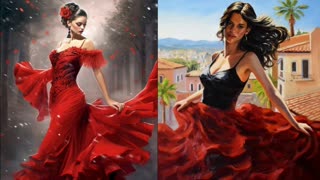 3:43
3:43
Psychological operations
4 days agoNever Been To Spain Three Dog Night
542 -
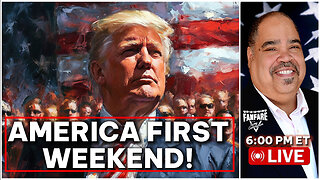 LIVE
LIVE
Barry Cunningham
4 hours agoHERE'S THE NEWS AND SCHEDULE FOR AN AMERICA FIRST WEEKEND!
7,147 watching -
 LIVE
LIVE
megimu32
20 minutes agoOFF THE SUBJECT: FAFO Friday! Bodycam Mayhem & Fortnite Fun
104 watching -
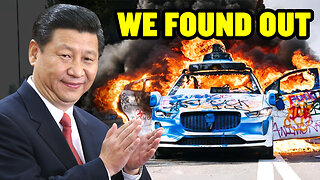 10:31
10:31
China Uncensored
5 hours agoHow China Is Secretly Behind the Anti-ICE Riots
1.15K7 -
 10:30
10:30
Tactical Advisor
5 hours agoNEW Radian Ramjet/Afterburner | Glock 43x & 48 (FIRST LOOK)
457 -
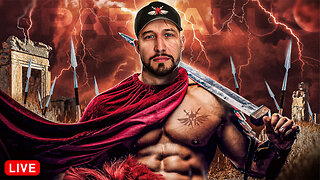 LIVE
LIVE
SpartakusLIVE
2 hours ago#1 Specialist EASTER EGG Champion brings YOU Friday Night HYPE
309 watching -
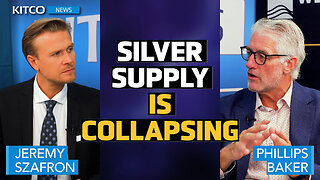 21:59
21:59
Kitco NEWS
11 hours agoStructural Silver Shortage Could Spark Long-Term Price Surge Warns CEO Phil Baker
151 -
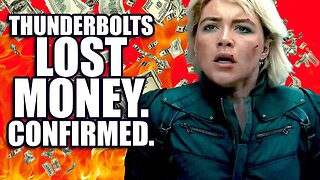 12:05
12:05
Clownfish TV
6 hours agoThunderbolts* Lost Money, Confirmed.
7141 -
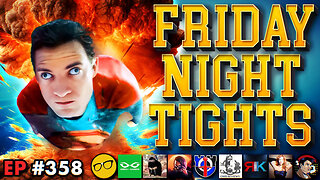 4:30:09
4:30:09
Nerdrotic
6 hours ago $9.42 earnedThe World is Burning, Let's TACO BOUT Hollywood! | Friday Night Tights 358
95.1K37 -
 2:51:48
2:51:48
Turning Point USA
3 hours agoWELCOME HOME! YWLS 2025 is LIVE! Hear from Alex Clark, Erika & Charlie Kirk, and more!!
29.4K2